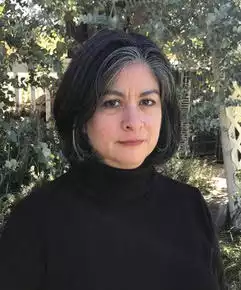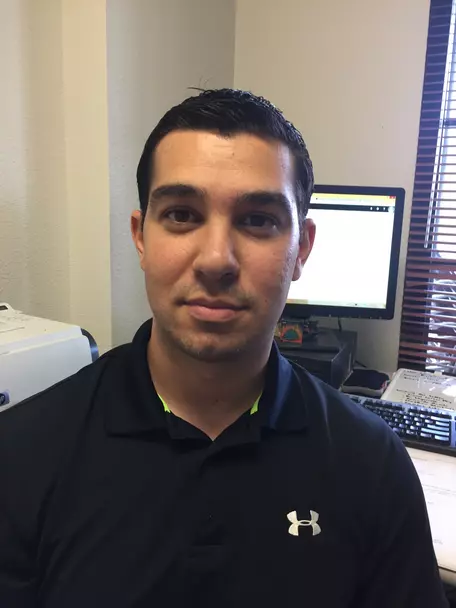Team Activities
Individual Accomplishments
Tina Carrick
I have or will be:
- Implementing Scientist Spotlight for a project and include a scientist at the end of each topic in the spring semester
- Implemented Bloom's Taxonomy
- Addition of more active learning Strategies
- Became more aware of sense of belonging and will incorporate assignments accordingly
- Started to implement more on careers and salary
Adriana Perez
I have:
- Explored some of the techniques that we discussed in our workshops
- Learned a lot of new "small teaching online" tricks and procedures from our reading and book club discussions
- Networked with faculty from different institutions and have had valuable insights from my colleagues.
Miguel Vasquez
I have:
- Redesigned my exams to include exam wrappers
- Developed several Scientist Spotlight homework activities for introductory biology students
- Next Steps: Begin including more positive reinforcement in the feedback for incorrect quiz and exam answers
- Start associating Bloom's Taxonomy with the Scientific Method
Team Accomplishments
Strengthening our Department/Program
Accomplishments/Action Plan:
- Improve student study habits utilizing metacognitive strategies which include techniques such as exam wrappers, study groups, and cooperative learning
- Present workshops teaching faculty what metacognitive learning is and how to implement these strategies in different teaching formats (F2F, hybrid, and on-line).
- Highlight different types of scientists and individual in careers helping students to visualize themselves in STEM fields/careers.
Next Steps: Disseminate this information to STEM programs and more faculty through faculty development workshops and events.
Developing our Campus Community
Engaging our Colleagues:
- Demonstrated several active learning strategies and how to implement them into an online environment
- Discussed the importance of science identity and gave examples of Scientist Spotlight activities
- Workshop attendees gave one active learning strategy in their classroom and reported their experience in the follow-up workshop.
The workshop had 14 total participants. Instructors reporting there strategies given had great results and feedback from the students.
Next Steps:
- Follow-up with more instructors on their active learning strategy experiences in the classroom.
- Address aspects of the workshop in our discipline meetings.
Team Members

Tina Carrick
Tina has been teaching for over 17 years. She, along with others, developed, implemented, and ran a very successful summer camp program for high school students as well as a research opportunity for undergraduates (REU) program during the regular academic year. She enjoyed working in controlled source seismology. She presented a poster on EPCC's efforts to broaden participation at the 2017 Earth Educator's Rendezvous.
Courses
Tina teaches Principles of Earth Science, Principles of Geology, Physical Geology, and Historical Geology.

Adriana Perez
Adriana is an assistant professor. She has been teaching for over 20 years at different local institutions. She teaches face-to-face, online, and hybrid courses as well as dual-credit sections. She recently completed the Effective Teaching Course of the American College and Universities Educators (ACUE) program as well as the Teachership Academy at EPCC. She is currently the adviser to the Phi Theta Kappa Honor Society. Adriana was the district-wide Coordinator for geology from 2015 to 2018,. She is the author of the InTeGrate module Environmental Justice and Freshwater Resources.
Courses
Adriana teaches Physical Geology, Earth Science, and Environmental Science. She teaches face-to-face, online, and hybrid courses as well as dual credit sections.

Miguel Vasquez
Miguel has taught biology at El Paso Community College for nearly six years. He teaches and develops online, hybrid, and face-to-face courses in biology and has developed the first fully online introductory biology course currently being taught at EPCC. Miguel is also involved in action research programs such as the Teachership Academy as well as the Faculty Mentoring Network under the Ecological Society of America. He also incorporates real-world research into his face-to-face undergraduate laboratory courses through the CURE research program funded by the NIH.
Courses
Miguel teaches both science and non-science major courses in Introductory Biology, General Microbiology, and Anatomy and Physiology.
Institution
El Paso Community College has 5 campuses and other locations located in the far west of Texas. It serves more than 38,000 students per year and also serves Ft. Bliss, a nearby military base. Nearly a quarter of its students are under 18 years old and 85 percent are Hispanic/Latino. Seventy-seven percent of first-time full-time students are awarded Pell grants.
Program/Department
The geology and biology programs are both housed within the Mathematics, Art, Science (MAS) division. The MAS Division also includes Chemistry, Engineering, Environmental Studies/Policy, Environmental Science, Mathematics, and Physics.
The Geology program offers an Associate's degree with seamless transfer to the local 4-year university (UTEP). Five full-time and 10 rotating adjunct faculty offer Principles of Earth Science, Principles of Geology, Physical Geology, Historical Geology, Field Methods, and Environmental Science. They have around 60 declared geology majors in their program. However, the majority of their students take geology courses to fulfill their science requirement. The department also offers a geoventures program, which offers several field trips each semester that are open to the public and highlight areas of geological interest within the El Paso region.
The Biology program serves both science and non-science majors. They offer Associate's degrees in Biological Science as well as Environmental Science that can be transferred to the local university (UTEP). Over forty full-time faculty and a large community of adjunct faculty offering biology courses in introductory, organismal, A&P, environmental, microorganisms and diseases, and microbiology. Most students that are under the major of biology are doing so to take the requirements for one of the three major nursing programs in our community (EPCC, UTEP, Texas Tech).
Institutional demographic data is from IPEDS the Integrated Postsecondary Education Data System, U.S. Department of Education, typically for the 2018-19 year as available.